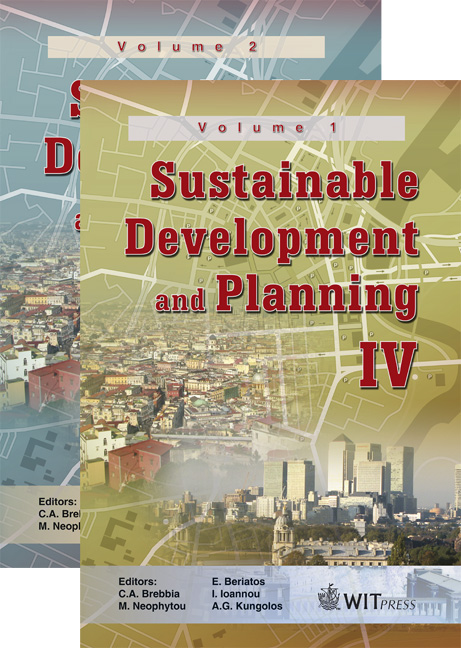Adobe: An Environmentally Friendly Construction Material
Price
Free (open access)
Transaction
Volume
120
Pages
12
Page Range
245 - 256
Published
2009
Size
2,851 kb
Paper DOI
10.2495/SDP090241
Copyright
WIT Press
Author(s)
R. Illampas, I. Ioannou & D. C. Charmpis
Abstract
Adobe is one of the oldest and most widespread forms of construction. Although technologically simple, this material has the potential to produce durable buildings of considerable architectural sophistication that are appropriate for arid climatic conditions and have a wide range of uses. This is true in both vernacular and ‘modern’ contexts. Moreover, adobe is an environmentally friendly material that does not require additional energy resources for its production and application, it can be fully recycled and it creates minimal levels of waste when disposed. Since most building techniques related to earth-based materials have been systematically neglected during recent decades, there is an imminent need to \“rediscover” adobe through academic research. This paper reports the first findings of a research program aiming to examine adobe structures in Cyprus. We present a review of the use of adobe on the island and the main causes of deterioration of adobe structures. We also mention techniques currently used for the restoration of traditional adobe buildings and we report some preliminary laboratory results of tests carried out on local adobes. Keywords: adobe, deterioration, compressive strength, earthen materials. 1 Introduction The construction and servicing of buildings has a big impact on the global environment. In the UK it has been estimated that about 30% of the country’s total energy consumption goes into the servicing of domestic buildings, while a further 8% goes into the construction of new buildings [1]. In countries with a lesser stock of existing buildings, such as Cyprus, the amount of energy consumed in the construction of new buildings is much greater.
Keywords
adobe, deterioration, compressive strength, earthen materials.





